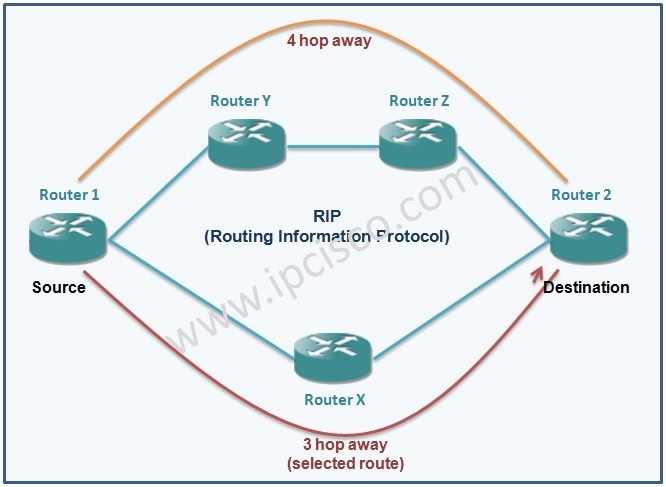- COURSES
- SPECIALS
- BLOG
- MEMBERS
- SHOP
- ABOUT
- ENROLL HERE

Table of Contents
RIP (Routing Information Protocol) is a Distance Vector Routing Protocol. It is the simplest Routing Protocol. So, Routing with RIP is generally used for small networks. For large networks and WAN links, it is inefficient.
In this article, we will focus on RIPv2, the enhanced version of RIP for IPv4. The other enhanced version of RIP, RIPng will be explained in another article.
RIP is a very easy Routing Protocol, it is easy to implement RIP. So, RIP is used for basic configuration examples to learn routing logic basically. RIP is also not in the Cisco ‘s CCNA exam anymore. Because of this, in this article we will only talk about RIP, basically. It is good to learn something about one more routing protocol ;)

RIP uses Bellman-Ford Algorithm for Route calculations. Bellman-Ford Algorithm is basically an algorithm that provide to find shortest path from a source to all other nodes. This is done by using metric values.
RIP (Routing Information Protocol) uses hop-count as metric. One hop means metric 1. It counts the hops and the better hop is the closest host. Or in other words, minimum hop count is the closest. The maximum hop count is 15 hop for RIP.
If you see a hop count in the routing table, this means that that route is unreachable. There can be a loop.
RIP Route Advertisements are sent periodically. This means that, in RIP network, all the routers send their routing tables to its neighbours every 30 seconds with Periodic Updates. The routing tables are updated by this. The aim of this processis to find the “best routes” to the destinations.
Beside Periodic updates, Triggered Updates are also used in RIP. Whenever a topological change occurs, Triggered Updates are sent and inform the other nodes. This is also a mechanims for Loop preventation.
Split Horizon and Poison Reverse are two basic terms we can hear in networking world. What are these terms? RIP overview is a good place to explain, these two terms. Beacause RIP supports these two concept. And these two concepts can wprk together.
Split Horizon is a mechanism that provides, not to advertise a route to the interface that it has learned. As a Split Horizon example, you can check the below topology: